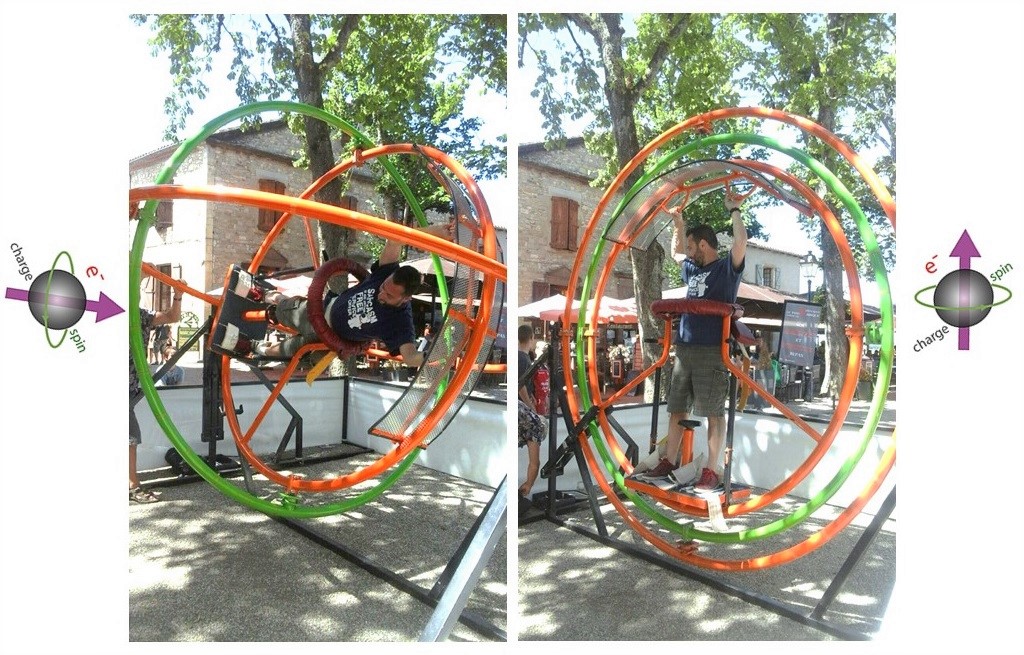Could you briefly tell us about your academic background and professional experience?
I have carried out my PhD in Germany (at the Institute of Organic Chemistry if the University of Tuebingen) working on supramolecular complexes formed by oligosaccharides and amino acids derivatives, analyzed by chiral chromatography and NMR spectroscopy. Afterwards I have been working extensively in the field magnetic resonance techniques. In particular, I have focused my research on EPR/ESR methodologies and applications on nucleic acids and proteins. I have carried out a first postdoctoral stage at the CEA in Grenoble, followed by another postdoc in Germany (at the Max Planck Institute for Biophysical Chemistry) and in 2014 I went back to Grenoble where I could apply for the Enhanced Eurotalents fellowship. Current I hold a permanent position as researcher at the CNRS in the LASIR lab /University of Lille.
What do you enjoy the most about your field? About science in general?
Magnetic resonance techniques can benefit from an integrative approach for studying structural features, as well as mechanistic aspects of biological systems up to bio-inspired materials. Indeed, I enjoy to focus on a key-question related to a specific system under investigation; from that I like to develop a robust protocol to analyze it. Basic research (or fundamental research) represents a very attractive challenge in science, because it allows to plan and develop a strategy that can be constantly enriched providing novel highlights and boosting the limits of the technique.

- What was your research project at CEA about?
During the period 2014-2016 I could work both on proteins and nucleic acids. In particular, I have been involved in the elucidation of a ‘radical chemistry’ mechanism using advanced EPR/ESR spectroscopies, and I also worked on ‘catalytic nucleic acids’ focusing on the selective binding to paramagnetic metal centers.
- What do you think about the quality of CEA’s facilities and equipment in relation to your project?
I have been extremely lucky, having the possibility to work in an environment providing expertise in the field of EPR/ESR spectroscopy at very high level. In addition to the suitable equipment, I would like to point out the great support received by my former supervisor and colleagues; this is a key-advantage doing research in order to overcome difficulties related to the project that may arise during the post-doctoral experience.
Do you think that your status of international researcher brought value to your laboratory? To your career?
I hope I could have given a different point of view to the daily work in the lab. It is not negligible that a continuous exchange with colleagues may bring benefits to both actors in the lab, such as students and postdocs and permanent staff. Between Germany and France, I have always worked in international teams and I think this is becoming extremely frequent in different countries.
Was the training session named “Post-doc: how to manage your career?” you attended in INSTN (CEA-Saclay) helpful to find your new position? Why?
I would say that the training session was useful especially regarding “how manage my career in the short- and mid-term” because the main issue is “postdoc runs quickly” and it is mandatory to optimize the timing in looking for next step of the career. In this regard, the training session gave a very realistic view of the scenario after the postdoctoral experience.
In a few words, what were the strengths of your stay at CEA?
I have been working at CEA for two postdoctoral experiences, and in both cases I would say that the efficiency found in some research teams is absolutely astonishing. I like to repeat myself and stress the point concerning the working environment, even for the remarkable support in looking for ‘next step’ in my career.
What are your main activities on your new position?
By applying at the CNRS position last year I have presented a project (which was part of the requirements within the application) based on the characterization by advanced paramagnetic resonance of ‘catalytic bio-polymers’. Furthermore, since the first months, I could even integrate my main activity with other collaborations, since the new affiliation is also member of a national platform of EPR facilities.
Do you have something to add to conclude?
I have been doing research on magnetic resonances since august 2006 and after eleven years, I realize that nothing is really changed in my attitude to face questions arising daily in this world. I do not know if this is a good sign (probably it is!), but I must admit that such endless curiosity can help significantly to overcome some periods where clear data are lacking and to deeply appreciate some other periods where nice results are achieved.